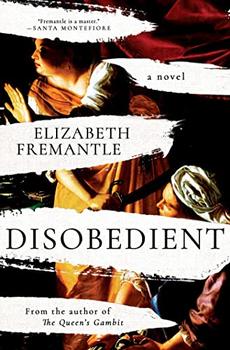Page 1 of 1
There is 1 reader review for Disobedient
Write your own review!
 Anthony Conty
Feminism for the Un-Initiated
Anthony Conty
Feminism for the Un-Initiated
“Disobedient” by Elizabeth Fremantle, author of the phenom “The Queen’s Gambit,” masterfully bridges the gap between the 17th century and today’s society, a feat that top-notch historical fiction often accomplishes. As a reader, I was captivated by the narrative, even though I had no prior knowledge of the real story. The book's ability to resonate with modern readers, such as myself, is a testament to its relevance and the author's skill in storytelling. I found myself relating to the protective father’s overbearing nature, a universal theme transcending time.
Historically, Artemisia Gentileschi is a famous artist constrained by the limits on women in 17th-century Italy. She suffers a horrible indignity you may know about if you studied her. A little knowledge of art, which I do not have, would help as we examine how people admire and simultaneously dismiss the female artist’s work and treat her like an object.
Perhaps I should not have been surprised by the gender politics in Italy during this era, but it was extreme. Any sexual assault was essentially the woman’s fault and expected. Artemesia becomes an unlikely symbol of feminism for reasons you would learn from a simple Wikipedia search; nevertheless, do not do that so that the book still surprises you.
Retellings remain one of the trickier genres to tackle since they involve taking actual, well-known events and trying to insert thoughts and feelings into them. Empathizing with strong-willed Artemesia is easy.
The themes of self-reliance, feminism, sexual assault, and individual autonomy remain relevant today. Knowing Artemesia’s work makes the story more interesting. It effectively puts you there. Our heroine refuses to follow orders and norms to make her life easier. Art and personal freedom matter to her, and she feels no need to take the easier route. She wanted the right to live.
